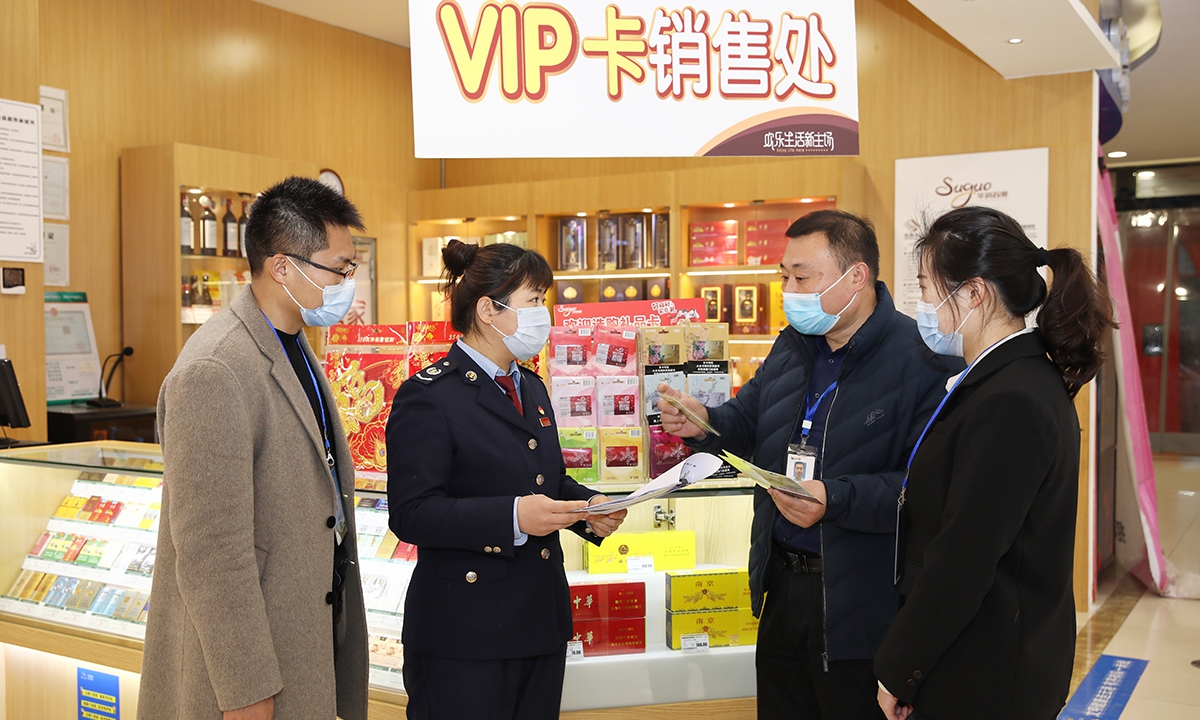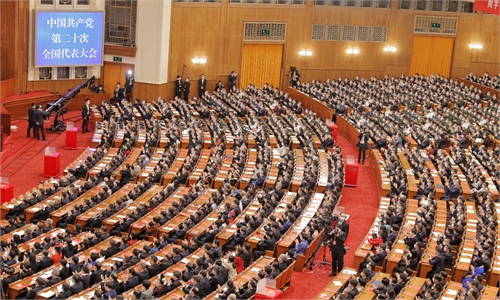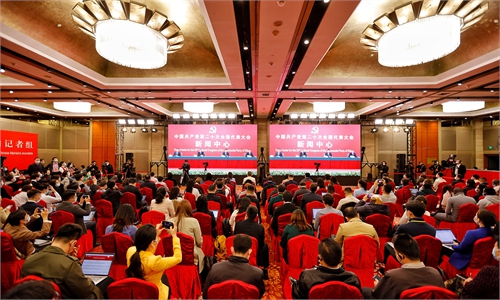Eight-point decision on Party conduct reaches 10th anniversary, leads to stricter self-governance, purer society
Rules leads to stricter self-governance, purer society

Officials inspect the sales of gift cards at a supermarket in Lianyungang, East China’s Jiangsu Province on February 4, 2021. Photo: VCG
It has been 10 years since the eight-point decision on work conduct were formulated and implemented after the 18th National Congress of the Communist Party of China (CPC) in 2012. More than 760,000 violations have been dealt with and more than 200 senior officials have been punished, which Chinese anti-graft experts believed showed obvious achievements in the CPC's stricter self-governance and building a purer society.
The eight-point rules, issued by the Political Bureau of the CPC Central Committee in December 2012, aim to reduce bureaucracy, extravagance and undesirable work practices of Party members. With clauses focusing on various forms of corruption and unauthorized use of government cars, the rules have played a significant role in the country's anti-corruption campaign.
According to data released on November 27 by the Central Commission for Discipline Inspection (CCDI) of the CPC and the State Supervision Commission, 7,558 cases in violation of the eight-point rules were investigated and punished in October, including 4,093 cases related to hedonism and extravagance.
The eight-point code is not a five-year or ten-year rule, but a long-term and effective iron rule, Xiao Pei, deputy head of the CCDI of the CPC and deputy head of the National Supervisory Commission, revealed at a press conference in October.
It is the consecutive 110th that the CCDI and the State Supervision Commission had released the summary of the investigation in violation of the eight-point decision since September 2013.
In the past 10 years, more than 761,000 cases in which officials violated the eight-point rules on work conduct have been solved, and 265 senior officials under the management of the Organization Department of the CPC Central Committee were placed under investigation for breaching the eight-point decision, Xiao stressed at the press conference.
The eight-point rules cover eight areas, including research, meetings, and frugality. They reflect the spirit of doing one thing well before doing another, so that everyone can feel that the Party and the government can do things well and that they are serious about their work, Liu Junjie, a researcher of the Contemporary Political Party Research Platform, told the Global Times on Sunday.
Over the past decade, the eight-point decision on improving Party's work conduct has put an end to many unhealthy tendencies and become the basic principle of Party members. The thought of privilege has been weakened and the political atmosphere has quietly changed, Zhuang Deshui, deputy director of the Research Center for Government Integrity-Building at Peking University, told the Global Times on Sunday.
For example, officials are far away from privileges and closer to the public. They have fewer meetings and documents but more grassroots-level research. There has been less extravagance and more thrift, and Party members and senior officials are increasingly concerned with the development of their undertakings and the needs of the people, Zhuang said.
"We have investigated and dealt with 1,109 cases of hedonism and extravagance involving 1,407 people, and more than 200 cases were investigated and dealt with every year from 2020 to 2022," Chen Hong, director of the Office of Supervision of Party Style and Political Style of the Supervision Committee of Chengdu Commission for Discipline Inspection, was quoted as saying by media. Chen also noted a downward trend year by year from 2018 to 2022 in disciplinary violations.
It is not only that the implementation of the eight-point decision had helped to promote all-out efforts to enforce strict Party discipline, but, as a following result, pure Party and government working styles promoted the transformation of community styles and led to improved social conduct in China, Liu noted.
For example, values have been reshaped imperceptibly. In the past, weddings and funerals were held with large arrangements, but now, banquets are simpler and more affordable, the expert noted.
Corruption in eating, drinking and so on are the problems that we focused on in the first stage. In the second stage, we are focusing on the problems of formalism and bureaucracy, including reducing the burden on the grassroots-level officials and allowing them to spend more time and energy on helping the public, according to Zhuang.
When the people feel the full and strict governance over the Party, they will have more trust on the government, Zhuang noted.
In the third stage, we need to oppose mindsets and acts of privilege seeking. Only by addressing the root causes of this problem can we truly make the people feel the fruits of self-reform, Zhuang said.
According to the recently released statistics on the investigation of problems in violation of the eight-point rules in October this year, 3,465 cases of formalism and bureaucracy were investigated and dealt with nationwide, 5,479 people were helped through criticism and education, and a strong signal was released that formalism and bureaucracy shall be tackled to the end and resolutely corrected.



